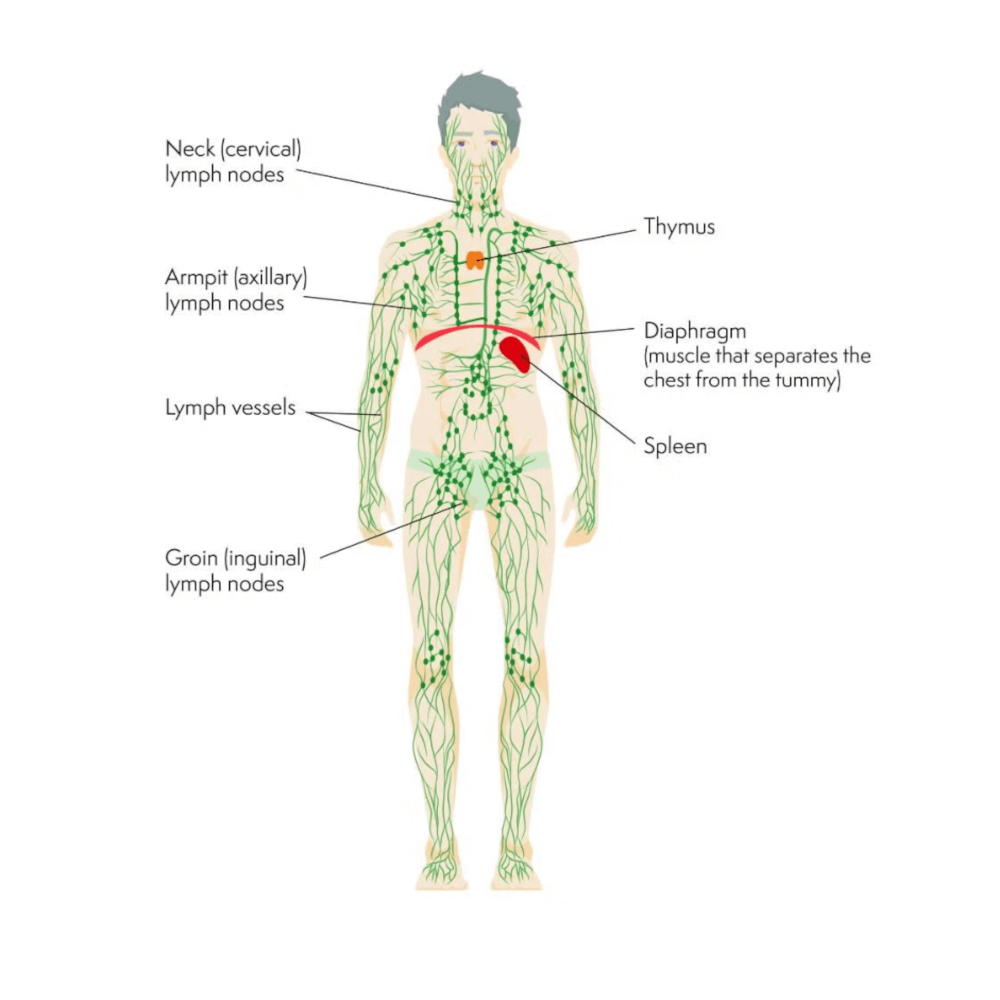Blood Cancer Awareness Month takes place every September in the UK. Led by the charity Lymphoma Action, it seeks to draw awareness to Britain’s 5th most common cancer.
What is Lymphoma?

Simplified diagram of the lymphatic system, courtesy of Lymphoma Action UK
Lymphoma is the most common type of blood cancer, affecting the lymphatic system. Hence why Lymphoma Action are so heavily involved with Blood Cancer Awareness Month in Britain. Within the catch-all term of lymphoma, however, are more than 60 different forms of cancer. The development of lymphoma happens when a type of white blood cell, called a lymphocyte, grows out of control. Lymphocytes are part of the immune system, which, when healthy, helps to fight infection. Lymphocytes travel around the body in the lymphatic system. This system contains a fluid named lymph. This lymph fluid passes through a system of glands which are spread throughout the body – glands known as lymph nodes. On account of the particular system within the body it affects, lymphoma might also be referred to as a cancer of the immune system.
The Major Forms of Lymphoma
The most important single division within forms of lymphoma is that between Hodgkin lymphomas and non-Hodgkin lymphomas. Non-Hodgkin lymphomas are further grouped depending on whether they are slow-growing (described as ‘low-grade’ or ‘indolent’) or fast-growing (‘high-grade’ or ‘aggressive’). Different types of lymphoma behave differently. On account of this, they require different treatment.
Hodkin Lymphoma
Hodgkin lymphomas are significantly rarer than other forms of lymphoma. They are characterised by a specific type of abnormal cells known as Reed–Sternberg cells, which are visible under a microscope. These lymphoma grouping is named after Dr Thomas Hodgkin, who was the first person to describe it in 1832. In the UK, according to Lymphoma Action, around 6 people per day are diagnosed with Hodkin Lymphoma. Hodkin Lymphoma is disproportionately common in people with HIV. HIV infection in itself increases the risk of developing lymphoma substantially. However, thanks to advances in HIV treatment, in particular, anti-retroviral medicines, that risk, whilst still elevated, has declined notably. As with much associated with HIV, therefore, it is better to know whether or not you have it. On the note of the importance of knowledge, alertness, and early detection, it’s well worth using the extensive resources of Lymphoma Action to learn more.
Thank you for reading.